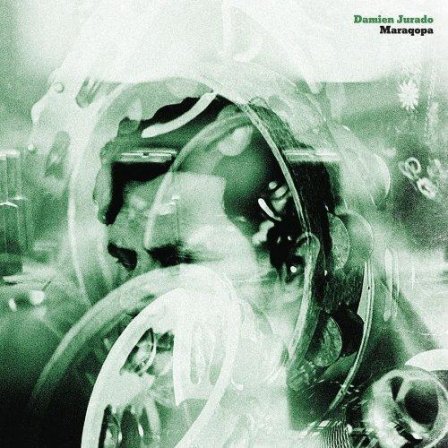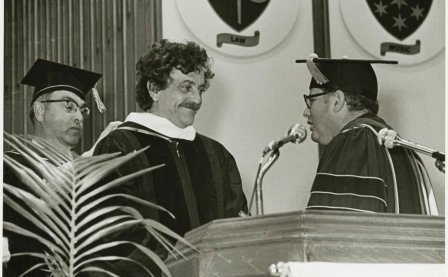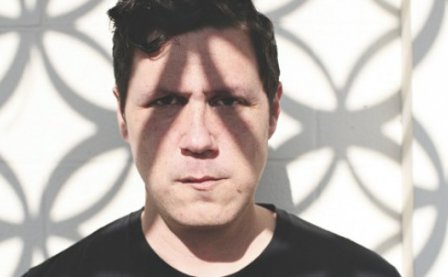Damien Jurado’s latest is a fantastic maze. As far as I can tell, Maraqopa is an imagined word, chosen perhaps for its aesthetic value or its auditory quality. That it bears a resemblance to the name of the Arizona county overseen by noted Latinophobe/”America’s Toughest Sheriff” Joe Arpaio is telling; that the term “Maricopa,” as it relates to said county and its American Indian namesake, is a bastardization of the Spanish word for “butterfly” — all these things are pertinent.
“Turn it around, you found that they were all wrong/ All you had heard were ghosts of the words in a song,” Jurado sings in Maraqopa opener “Nothing is the News.” The loosest song in Jurado’s catalog by far, “News” is psych-sick, desert-worn, the sound of a hard and lonesome cowboy after dark. Fifteen years into his career, Jurado is still obsessed with how we fit into our own lives and one another’s, or how we abjectly and repeatedly fail to do so.
But his tune has changed, literally. Jurado’s creative trajectory over the last few years has been one of steep upward movement. 2010’s Saint Bartlett was full of unexpectedly fresh moments from a guy whose songwriting had grown stagnant. Although captivating, it was still laden with some familiar trappings — doubt, self-pity, despair. In contrast, Maraqopa is a shooting star, an album bursting with presence of mind, a testimony to emotional rebirth buoyed by recurring themes of freedom and transcendence. “All of us light/ All of us free,” Jurado wails at the close of “Life Away from the Garden.” The title track features a similarly simple refrain: “We are free.”
As blissfully luminous as Jurado’s art has become, it’s been an undeniably heavy journey. “Many nights you would hide from the audience/ When they were not in tune with your progress/ In the end, you’re a fool like the journalist/ Who turns what you sing into business,” Jurado sings on “Working Titles.” It’s a cutting bit of commentary directed in part at us writers, but it’s also a painful portrait of self-sabotage, a concept not unfamiliar to anyone who seeks to create. Most importantly, the passage offers a clear-eyed documentation of Jurado’s evolution from shoegazing folkie to self-confident songsmith, from depressive caterpillar to budding, beautiful mariposa. (When I saw Jurado at last year’s Pickathon, he wore an impossibly bright rainbow-colored shawl; it felt in many ways like a proclamation.)
It seems impossible, when discussing Jurado’s recent renaissance, to overstate the role of songwriter/producer Richard Swift. A constant presence throughout Maraqopa, Swift also helmed the boards for Saint Bartlett and by all accounts has become not only a musical partner to Jurado, but also a friend, supporter, and muse. Most obviously, the psych-soul leanings of Swift’s own sound have proven an incontestable influence. The snaking bossa nova rhythms of “This Time Next Year;” the vast, echoing tunnels of “Reel to Reel;” and the angelic ooh-oohs of “Working Titles” are among the more blatant, Swift-inspired touches on Maraqopa. (It’s true that at times Swift’s hand feels particularly heavy; neither every backing vocal nor every shimmering bit of psychedelia feels wholly essential.)
But most importantly, like all great producers, Swift’s hand has ventured beyond the physical realm into the winding passageways of Jurado’s mind-space. The greatest change in Jurado’s music over his last couple albums hasn’t been the music itself, though it has undergone a relatively dramatic makeover; it’s been the drastic jump in his creative confidence, his willingness to expand his art, to extend himself to unfamiliar and potentially uncomfortable limits. It’s a trait we find admirable in any artist; when it yields such fine results, we call it a mark of genius.
Warmth, generosity, luminescence: these are terms I would never have thought to associate with Damien Jurado. And yet here he is with “Museum of Flight,” an achingly sweet song wherein the famously glum songwriter attempts — and magnificently achieves — one of the more precarious falsettos I’ve ever heard. Here he is with Maraqopa’s title track, its name a possible reference to a people long forgotten or a people persistently oppressed, the song itself a paean, a call to rise above. “We are echoes God creates in the shade,” Jurado coos with Swift in tandem. Then, unaccompanied, Jurado extends himself again: “All are welcome in.”
More about: Damien Jurado




